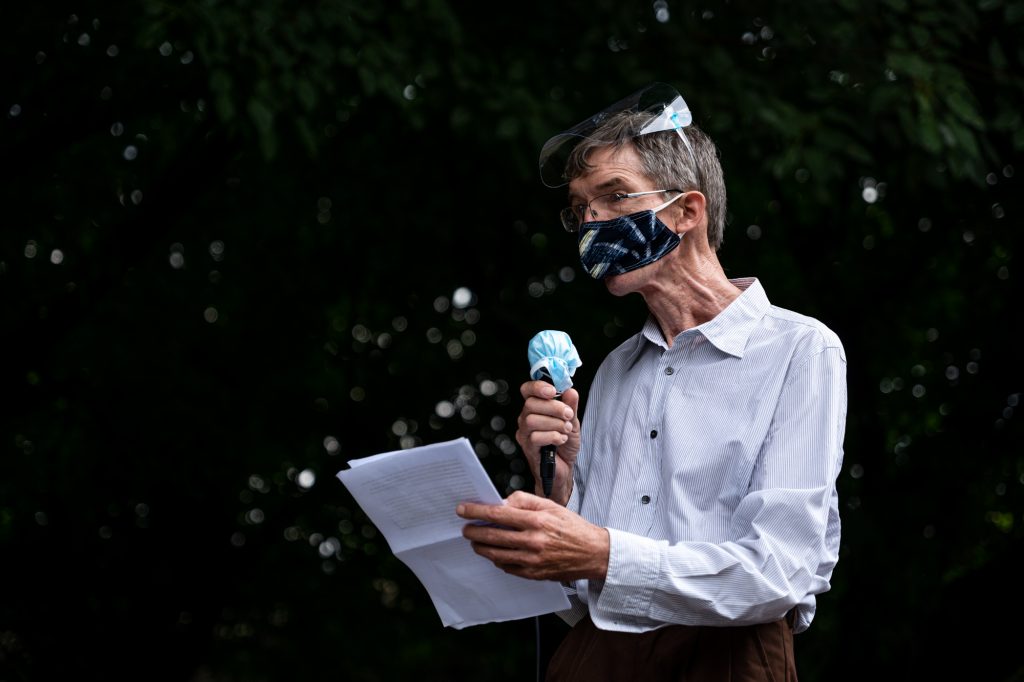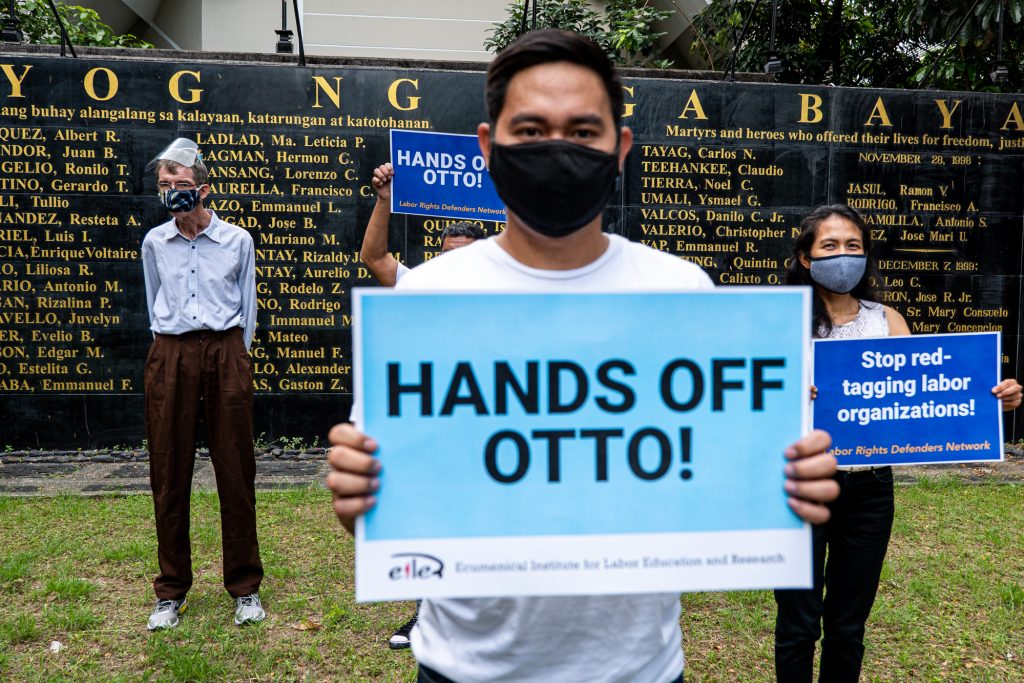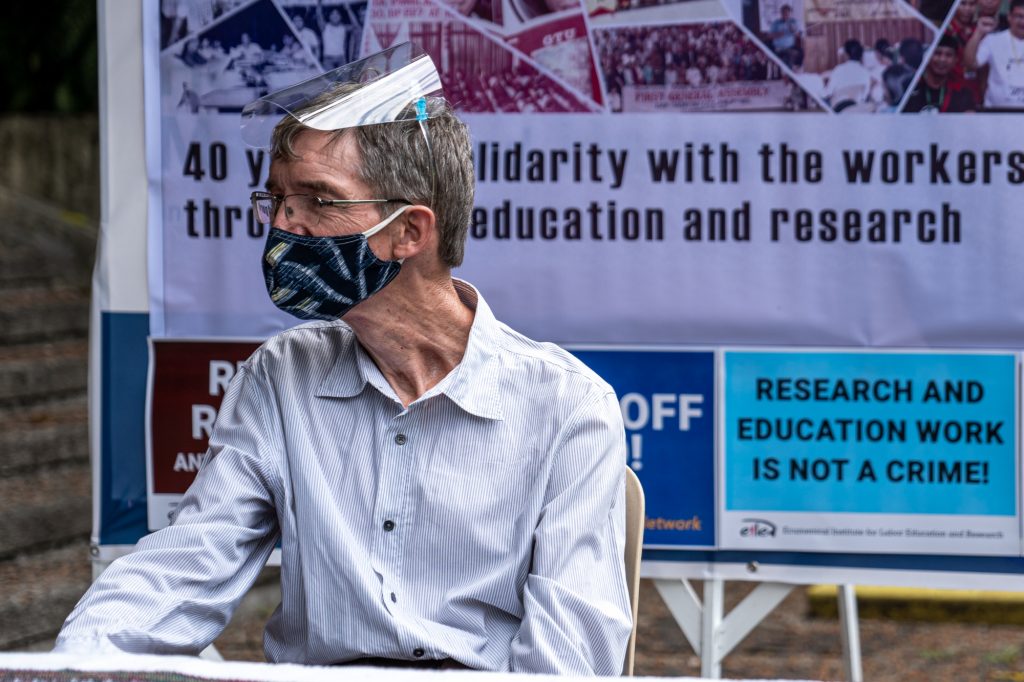
The Philippine government has canceled the “permanent resident” visa of a Dutch Catholic missionary and ordered him to leave the country over his alleged involvement in “illegal political activities.”
Otto Rudolf De Vries, a 62-year-old Church worker from the Diocese of Rotterdam in The Netherlands, received the order on February 3 when he was about to renew his visa at the Bureau of Immigration in Manila.
The order stemmed from a letter dated Dec. 10, 2019, from the National Intelligence Coordinating Agency to the Immigration bureau, alleging that De Vries had “engaged and was actively participating in protest rallies of Communist-Terrorist Groups front organizations.”
The letter indicated that De Vries was seen in several political gatherings led by the Ecumenical Institute for Labor Education and Research (EILER) and the labor center Kilusang Mayo Uno.
The intelligence agency has tagged the two organizations as having links with the communist underground movement.
The Immigration bureau’s legal division has directed De Vries to submit his counter-affidavit on Jan. 23, 2020, but the missionary “opted not to do so.”
In an interview with LiCAS.news, De Vries said he did not receive any communication or notice from the intelligence agency and the Immigration bureau until he visited the immigration office.
“I was not notified of any proceedings and was not able to refute the malicious allegations of [the intelligence agency],” he said.
De Vries was given 30 days upon the receipt of the order to leave the country.
The order was signed and approved by the bureau’s Board of Commissioners on Nov. 27, 2020, a few weeks after the Anti-Terrorism Law took effect.

De Vries arrived in the Philippines on May 11, 1991, to work as a lay missionary upon the request of the late Bishop Julio Xavier Labayen of the Prelature of Infanta.
The missionary said Bishop Labayen’s appeal to live out the “Church of the Poor” inspired him to immerse in the “everyday reality of the workers.”
Bishop Ronald Philippe Bar, retired prelate of Rotterdam, wrote Bishop Labayen a letter on May 17, 1991, passing De Vries under his jurisdiction and responsibility. Since then, De Vries has been reporting to the Prelate of Infanta.
“In all those years, I regularly reported about my mission to Bishop Labayen, including the worsening situation of the workers,” said De Vries.
De Vries continued his work under Bishop Labayen’s successors, Archbishop Rolando Tria Tirona, and presently with Bishop Bernardino Cruz Cortez.
He said the bishops “consistently stressed the importance of such a mission for the Church,” which he said has “motivated me to continue.”
De Vries has been living and working in the Philippines for about 30 years and is staying in an urban poor community in the city of Pasig over 20 years.
He is currently a volunteer researcher for EILER, an institution that provides education and research for labor groups and unions.
De Vries said his presence in protest rallies and visits to workplaces were part of his work as a researcher.

Rochelle Porras, EILER executive director, said the cancellation of De Vries’ visa “is without any valid and legal cause,” adding that the “red-tagging” of EILER is “irresponsible and reckless.”
“We strongly condemn this blatant attack on our institution, and we strongly denounce the continuing efforts of the present administration to undermine and smear pro-labor groups and advocates,” she said.
Elmer Labog, chairperson of the labor center Kilusang Mayo Uno, said De Vries “has exemplified and concretized the mission of the religious to build a Church for the Poor.”
“For years, he has immersed himself in workplaces and communities to study the conditions of the Filipino workers,” he said.
The labor leader called on the government to recognize the efforts and works of De Vries on the social conditions of Filipino workers “instead of vilifying and harassing him.”
Father Eric Adoviso, head of the Ministry for Labor Concerns of the Archdiocese of Manila, said De Vries’ missionary work “contributed a lot in our understanding” of the condition and the plight of the labor sector.
He also urged the Immigration bureau to “review and reconsider” its order to send the Dutch missionary out of the country.
Source: Licas Philippines
0 Comments